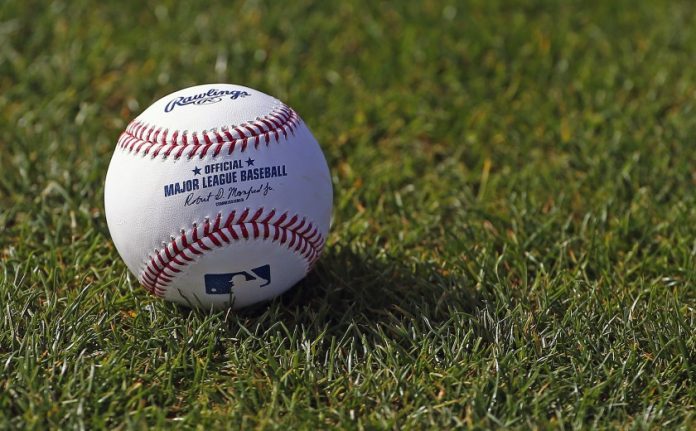Last night Major League Baseball announced that it will implement a 2020 season. Officials did not make a formal announcement on length. But it’s widely expected to be an MLB 60-game season. Players will, per the March 26 Agreement between the sides, be paid on a prorated basis.
People who have not been closely following the blow-by-blow of negotiations may have a lot of questions right now. Let’s try to answer as many of them as possible. We’ll start with the easy ones.
Q: So when is the season supposed to start?
A: The league has asked the players to tell them by 5 PM ET Tuesday whether they believe it’ll be possible for them to report to a brief “spring training” at each team’s home ballpark beginning on July 1 and has penciled in a July 24th Opening Day. The 60-game schedule will conclude around September 27 and then the postseason will then commence.
Q: What will the MLB 60-game season look like?
A: Weird. There will be, as you’d expect, no fans in the stands. The schedule itself has not been released but, in earlier discussions of the matter, MLB suggested that it would toss out the traditional American and National Leagues in favor of three 10-team divisions based on geography. Teams would only play against the other clubs in their division so as to limit travel. Those plans were came to light in late April and early May, of course, so whether that is still the plan remains an open question. We’ll likely hear more in the near future.
As for the postseason, it will still be ten total teams playing. There will likewise be a universal DH, but for this year only.
Q: There’s still a pandemic going on. How is baseball planning to deal with that?
A: In its announcement last night, MLB asked the Players Association to “agree on the Operating Manual which contains the health and safety protocols necessary to give us the best opportunity to conduct and complete our regular season and Postseason.” While there were reports several weeks ago about the sorts of precautions the league planned to take in light of the COVID-19 pandemic, no one beyond the league and the players has seen this “Operating Manual,” at least in full. It has been reported, though, that the two sides have been conducting quiet, parallel negotiations about all of that stuff. I would suspect that the players will sign off on it.
The real question is whether that even matters. There have been numerous reports of COVID-19 outbreaks in various spring training facilities in recent days, and other sports including hockey and college football have seen large outbreaks of their own. Overall, of course, there has been a significant increase in COVID-19 infections in the past couple of weeks, particularly in places where a lot of players live and train like Florida, Texas, Arizona, and southern California. Regardless of what the league and the players put down on paper, COVID-19 may still have a very big say about how the 2020 season is played. Or even if it is played. No one knows right now what will happen if, in the middle of the season, half a team tests positive for the virus. No one knows what happens if we get to Game 7 of the World Series and the scheduled starting pitcher for the home team spikes a fever.
In short: everything else we talk about here will be meaningless if the pandemic makes playing baseball too risky.
Q: Why in the heck did it take so long for us to get to the point of the owners imposing a season anyway?
A: The short answer: because Commissioner Rob Manfred and the owners wasted a month and a half trying to renege on a previous deal. Here’s the detailed version:
Back in March, when everything hit the fan with the COVID-19 pandemic, Major League Baseball and the Major League Baseball Players Association reached a fairly quick agreement that you most often hear referred to as “the March Agreement.” That dealt with a lot of things, but the most important thing it did was create a basic framework about how to go about setting up a 2020 season when the time was right.
The terms of that basic framework: the players earned the right to receive prorated pay for however many games played and Major League Baseball would get to decide how many games would, in fact, be played. In light of that, one might’ve assumed that when it came time to set up a 2020 season, it’d be a pretty straightforward thing: the owners, per the March Agreement, would simply say “we’ll play a season of X games” and it’d be done.
Except when the owners first spoke, and proposed an 82-game season in early May, it came with a catch: a demand that the players give up their previously-negotiated right to prorated pay and accept different financial terms. Legally speaking the owners had no right to ask for that and the players were under no obligation to negotiate that. They declined to do so and, instead, countered with various proposals on season length and did not negotiate pay rate. The owners, nonetheless, spent more than a month asking for the players to abandon their rights to prorated pay, proposing multiple alternative schemes. It was not until June 17 — after the players said they would no longer negotiate if MLB kept including pay concessions in their offers and, instead, simply demanded that MLB impose a season and be done with it — that MLB came back with its first offer that complied with the March Agreement.
So, you may ask
“why did it take baseball this long to get a season set?”
The answer is “because Major League Baseball spent almost a month and a half trying to impermissibly alter the March Agreement.” It only took five days from the time MLB made its first offer that actually complied with the legal framework for negotiations — its June 17 offer — until it was all settled last night.













